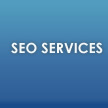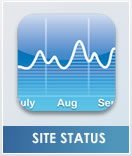|
Reports suggest that the majority of websites
have already deployed or are in the process of investing in web
analytics. 47% use web analytics with 12% planning to upgrade or
replace in the next 12 months. Deployment is planned by 22%, however
19% of businesses have no intention of applying analytics.
As businesses invest more in their Web sites seeking new ways in
which to engage customers with interactive and social media, so the
expectations for online marketers are growing. Web 2.0 features
including social networks, Blogs, wikis, consumer generated content,
podcasts, RSS, rich internet applications (RIAs), social tagging and
bookmarking, publishing and mash-up content all of which present
innovative and powerful new ways in which organisations can
interact, share their online messages and derive returns.
For most organizations the measure of search engine optimisation
campaign success has traditionally and almost singularly been
through Search Engine Ranking. With the emergence of Web 2.0 we are
seeing new models emerge for the measurement of Web Statistics And
Analytics.
As has been realised over the last few years there's a lot more to
accurately tracking Search Engine Optimisation success than simply
measuring rankings or counting page views. Neither offering a
particularly insightful measurement of activity and performance. As
most actions take place on page through rich Internet applications (RIA's),
the traditional analytical measures require a new approach to assess
the effectiveness of Web 2.0 elements.
Analytics is a dedicated, specialist discipline. Successful websites
use analytics to drive their web design, search engine optimisation
and marketing campaigns. To measure website performance and Search
Engine Optimisation effectiveness, more than ever marketers need
analytics solutions that offer the power and flexibility to uncover
a complete range of information - analytics and professional
analytical interpretations that accurately reflect the real
performance of their organisation's web presence.
Revealing analytics empower marketers and management to swiftly and
simply measure the complete range of their organization's online
presence, from rich Internet applications, online video, RSS Feeds,
consumer-generated media, to static site content. With functional
reporting for almost every type of media and online activity -
including Web 2.0 media - SEO-MAMA are perfectly positioned to
answer the Search Engine Optimisation questions that are most
important to your organization. We configure reports that provide
dynamic views of a range of tracking metrics and results
customisable to include success metrics specific to a variety of
industries.
A major problem with collecting and analysing data is the sheer
volume of data available as there are numerous things to measure -
data can become unwieldy, lead to data overload and analysis
paralysis. Not only do we collect the correct data we know how to
correctly interpret it.
At SEO-MAMA we clearly appreciate that there's a great deal more to
Search Engine Optimisation and analytics than just rankings and that
a successful Search Engine Optimisation campaign will deliver
traffic from a wide range of keywords, including terms and phrases
you might not have expected. The success of SEO campaigns needs to
be measured from all angles. Non-branded search traffic, percentage
of traffic from search engines and rankings are all insightful
metrics of value.
The bottom line is that your organisation needs to see whether your
SEO is succeeding and more than that helping your business develop
and grow and you don't necessarily have to be at number one in
the Search Engine Rankings for this to be the case.
Here are some of the analytics that our Search Engine Optimization
experts consider critical when studying data gathered through
analytical tools including Google Analytic.
· Identify your top referring keywords. It's estimated that
25% of Google queries are unique. The referring keywords to a site
will reveal patterns and themes that otherwise would be next to
impossible to identify. We can use this analysis to guide keyword
selection and hone campaign direction. A successful Search Engine
Optimization campaign will deliver traffic from a wide range of
keywords, including terms and phrases you didn't expect.
· Referring Domains. This metric highlights the biggest
drivers of traffic to your site - usually search engines and related
sites tend to occupy the top of the list. By being able to identify
your references you are able to measure the effectiveness of a link
building campaign and also pinpoint themes and hot spots where you
may be able to create or build on a buzz. Perhaps a particular site
is reviewing your product very favourably or an influential blogger
is name checking you. With this sort of information to hand you
might modify your content to integrate appropriate link baiting.
· Click path analysis. Analytics that tell you how people are
navigating through the site can inform you of the effectiveness of
your site layout. Click path analysis offer opportunities to engage
visitors more effectively by improving the navigation experience.
· Paid vs. Natural. Identify gaps between your paid and natural
campaigns. Paid search allows us to quickly target high volume terms
and use ROI/conversion rate data to inform our decisions on where we
want to compete organically. Similarly, areas that see high activity
through organic Search Engine Optimisation can inform PPC campaigns.
· Geographic referrals. Location, location, location. The
more targeted and niche the Internet becomes, the more geography
matters. Identify regional hotspots or the effects of offline
marketing. You can use accurate geo data to develop new content,
launch targeted landing pages, and in some cases, even modify
service offerings to better target geo revenue sources.
· Visiting trends. See how many visitors you have this month
to month. Determine seasonal trends and optimise accordingly. Use
trend analysis to identify and apply correlations between the time
of year and referring keywords.
· Top Landing Pages. Plenty of powerful data can be derived
from analysing which pages are proving most popular. Data can be
used to optimise site structure and gear the internal linking scheme
using optimal anchor text to channel traffic to other less visited
pages.
· Conversion Rates. The million-dollar metric. Do your
visitors do what you ultimately want them to do? If so, then how
often? Is this more or less than before? Desired actions may include
purchasing products, completing a registration form, or downloading
a file.
Regardless of what the action is conversion is the ultimate arbiter
of success. Driving traffic to the website is half the battle,
having a website that drives the traffic to take a desired action
might be considered to be just as important. Using conversion rate
analysis informs decision-making (this principle applies to the
other metrics listed here too) and is absolutely essential for you
to take the right actions. The consequences of informed decision
making might be changes to campaign budgets, landing page
optimisation, re-targeting keywords, Fresh Copywriting, building
different link bait or a host of other Search Engine Optimization
changes.
· Bounce Rate. Essentially tells you how many people visited
a single page on your site and didn't go anywhere else. A high
bounce rate is not something you want. This will usually correlate
to visitors spending a short amount of time on the page and leaving
the site. It's normally the case that visitors don't hang around if
they don't find the information they are looking for. Measuring
bounce rate is important in evaluating the effectiveness of content.
· Browser type. A metric that fell out of favour but is now
making a comeback largely due to mobile connectivity. Present your
web presence in as effective a way as possible to those browsers
that your analytics tell you are being used to view it. If you are
being told that mobile browsers or spiders are struggling to view
your information properly then act accordingly.
Of course there are many other web analytics that can also inform
your SEO including analysis of non-branded traffic, the measurement
of which will show how your audience looks for you, allowing you to
further refine your campaigns.
Some Search Engine Optimisation experts even go as far as to say
that non-branded traffic, how much traffic you receive from terms
that don't include your company name is in fact the truest measure
of search engine optimization success.
|



















